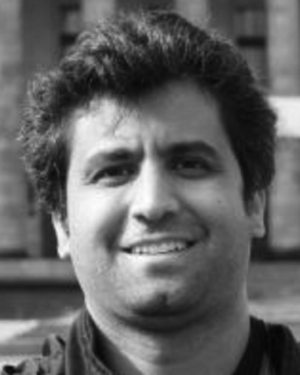Abstract:
In this paper, we present an accuracy-aware design framework [called accuracy-aware high-level synthesis (Achilles)], which synthesizes a high-level description of an inp...Show MoreMetadata
Abstract:
In this paper, we present an accuracy-aware design framework [called accuracy-aware high-level synthesis (Achilles)], which synthesizes a high-level description of an input application with the objective of minimizing the energy consumption of the synthesized circuit. The proposed framework includes two main parts of Achilles and light-weight predictor selection. The framework leverages light-weight error predictors (i.e., machine learning-based classifiers) to achieve more energy reduction by dynamically managing the output quality level (exact or approximate) of the synthesized circuit. To synthesize the input application, first, we exploit a heuristic algorithm to determine the quality level required for each operation in the data flow graph (DFG) representation of the input application. Next, for synthesizing the input application, we propose an effective Achilles algorithm which utilizes the flexibility of the available multiquality arithmetic units in a high-level cell library to synthesize the datapath. To improve the efficiency, the process starts by iteratively reducing the number of functional units required for synthesizing the DFG. Then, a proper light-weight error predictor satisfying the user expected quality is chosen from the available predictors in the framework. Based on the quality requirements, three different quality management modes are considered. The efficacy of the proposed framework is assessed for benchmarks from image and signal processing as well as robotics domains. The study of these benchmarks indicates that Achilles may reduce the energy consumption up to 51% (36% on average), up to 72% (51% on average), and up to 57% (33% on average) in threshold, average, and hybrid modes, respectively, for the studied cases. Moreover, the results show that relative coverage of large errors may be increased from 21% to 55% by employing synthetic minority oversampling technique method.
Published in: IEEE Transactions on Computer-Aided Design of Integrated Circuits and Systems ( Volume: 38, Issue: 8, August 2019)

School of Electrical and Computer Engineering, University of Tehran, Tehran, Iran
Shayan Tabatabaei-Nikkhah received the M.Sc. degree in electrical engineering from the University of Tehran, Tehran, Iran, in 2018.
His current research interests include approximate computing, electronic design automation, low-power design, hardware/software co-design, and computer architecture.
Shayan Tabatabaei-Nikkhah received the M.Sc. degree in electrical engineering from the University of Tehran, Tehran, Iran, in 2018.
His current research interests include approximate computing, electronic design automation, low-power design, hardware/software co-design, and computer architecture.View more

School of Electrical and Computer Engineering, University of Tehran, Tehran, Iran
Mahdi Zahedi received the M.Sc. degree in electrical engineering from the University of Tehran, Tehran, Iran, in 2017. He is currently pursuing the Ph.D. degree in electrical engineering with the Eindhoven University of Technology, Eindhoven, The Netherlands. His current research interests include reconfigurable design and system-level HW/SW co-design.
Mahdi Zahedi received the M.Sc. degree in electrical engineering from the University of Tehran, Tehran, Iran, in 2017. He is currently pursuing the Ph.D. degree in electrical engineering with the Eindhoven University of Technology, Eindhoven, The Netherlands. His current research interests include reconfigurable design and system-level HW/SW co-design.View more

School of Electrical and Computer Engineering, University of Tehran, Tehran, Iran
Mehdi Kamal received the Ph.D. degree in computer engineering from the University of Tehran, Tehran, Iran, in 2013.
He is currently an Assistant Professor with the School of Electrical and Computer Engineering, University of Tehran. His current research interests include reliability in nanoscale design, approximate computing, neuromorphic computing, and low-power design.
Mehdi Kamal received the Ph.D. degree in computer engineering from the University of Tehran, Tehran, Iran, in 2013.
He is currently an Assistant Professor with the School of Electrical and Computer Engineering, University of Tehran. His current research interests include reliability in nanoscale design, approximate computing, neuromorphic computing, and low-power design.View more

School of Electrical and Computer Engineering, University of Tehran, Tehran, Iran
Ali Afzali-Kusha received the Ph.D. degree in electrical engineering from the University of Michigan, Ann Arbor, MI, USA, in 1994.
Since 1995, he has been with the University of Tehran, where he is currently a Professor with the School of Electrical and Computer Engineering. His current research interests include low-power high-performance design methodologies from the physical design level to the system level for nanoelec...Show More
Ali Afzali-Kusha received the Ph.D. degree in electrical engineering from the University of Michigan, Ann Arbor, MI, USA, in 1994.
Since 1995, he has been with the University of Tehran, where he is currently a Professor with the School of Electrical and Computer Engineering. His current research interests include low-power high-performance design methodologies from the physical design level to the system level for nanoelec...View more

Department of Electrical Engineering, University of Southern California, Los Angeles, CA, USA
Massoud Pedram (F’01) received the Ph.D. degree in electrical engineering and computer sciences from the University of California at Berkeley, Berkeley, CA, USA, in 1991.
In 1991, he joined the Ming Hsieh Department of Electrical Engineering, University of Southern California (USC), Los Angeles, CA, USA, where he is currently the Stephen and Etta Varra Professor with the USC Viterbi School of Engineering. His current resea...Show More
Massoud Pedram (F’01) received the Ph.D. degree in electrical engineering and computer sciences from the University of California at Berkeley, Berkeley, CA, USA, in 1991.
In 1991, he joined the Ming Hsieh Department of Electrical Engineering, University of Southern California (USC), Los Angeles, CA, USA, where he is currently the Stephen and Etta Varra Professor with the USC Viterbi School of Engineering. His current resea...View more

School of Electrical and Computer Engineering, University of Tehran, Tehran, Iran
Shayan Tabatabaei-Nikkhah received the M.Sc. degree in electrical engineering from the University of Tehran, Tehran, Iran, in 2018.
His current research interests include approximate computing, electronic design automation, low-power design, hardware/software co-design, and computer architecture.
Shayan Tabatabaei-Nikkhah received the M.Sc. degree in electrical engineering from the University of Tehran, Tehran, Iran, in 2018.
His current research interests include approximate computing, electronic design automation, low-power design, hardware/software co-design, and computer architecture.View more

School of Electrical and Computer Engineering, University of Tehran, Tehran, Iran
Mahdi Zahedi received the M.Sc. degree in electrical engineering from the University of Tehran, Tehran, Iran, in 2017. He is currently pursuing the Ph.D. degree in electrical engineering with the Eindhoven University of Technology, Eindhoven, The Netherlands. His current research interests include reconfigurable design and system-level HW/SW co-design.
Mahdi Zahedi received the M.Sc. degree in electrical engineering from the University of Tehran, Tehran, Iran, in 2017. He is currently pursuing the Ph.D. degree in electrical engineering with the Eindhoven University of Technology, Eindhoven, The Netherlands. His current research interests include reconfigurable design and system-level HW/SW co-design.View more

School of Electrical and Computer Engineering, University of Tehran, Tehran, Iran
Mehdi Kamal received the Ph.D. degree in computer engineering from the University of Tehran, Tehran, Iran, in 2013.
He is currently an Assistant Professor with the School of Electrical and Computer Engineering, University of Tehran. His current research interests include reliability in nanoscale design, approximate computing, neuromorphic computing, and low-power design.
Mehdi Kamal received the Ph.D. degree in computer engineering from the University of Tehran, Tehran, Iran, in 2013.
He is currently an Assistant Professor with the School of Electrical and Computer Engineering, University of Tehran. His current research interests include reliability in nanoscale design, approximate computing, neuromorphic computing, and low-power design.View more

School of Electrical and Computer Engineering, University of Tehran, Tehran, Iran
Ali Afzali-Kusha received the Ph.D. degree in electrical engineering from the University of Michigan, Ann Arbor, MI, USA, in 1994.
Since 1995, he has been with the University of Tehran, where he is currently a Professor with the School of Electrical and Computer Engineering. His current research interests include low-power high-performance design methodologies from the physical design level to the system level for nanoelectronics era.
Ali Afzali-Kusha received the Ph.D. degree in electrical engineering from the University of Michigan, Ann Arbor, MI, USA, in 1994.
Since 1995, he has been with the University of Tehran, where he is currently a Professor with the School of Electrical and Computer Engineering. His current research interests include low-power high-performance design methodologies from the physical design level to the system level for nanoelectronics era.View more

Department of Electrical Engineering, University of Southern California, Los Angeles, CA, USA
Massoud Pedram (F’01) received the Ph.D. degree in electrical engineering and computer sciences from the University of California at Berkeley, Berkeley, CA, USA, in 1991.
In 1991, he joined the Ming Hsieh Department of Electrical Engineering, University of Southern California (USC), Los Angeles, CA, USA, where he is currently the Stephen and Etta Varra Professor with the USC Viterbi School of Engineering. His current research interests include energy-efficient computing, system-level power management and power-aware design methodologies, and low power circuit design techniques.
Massoud Pedram (F’01) received the Ph.D. degree in electrical engineering and computer sciences from the University of California at Berkeley, Berkeley, CA, USA, in 1991.
In 1991, he joined the Ming Hsieh Department of Electrical Engineering, University of Southern California (USC), Los Angeles, CA, USA, where he is currently the Stephen and Etta Varra Professor with the USC Viterbi School of Engineering. His current research interests include energy-efficient computing, system-level power management and power-aware design methodologies, and low power circuit design techniques.View more


